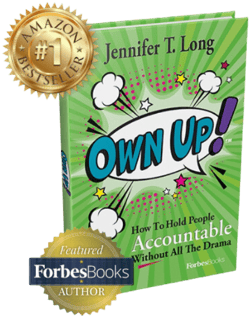You probably don’t realize it, but you ask yourself these questions several times a day. You do it when you stand on the subway platform. You do it when you get coffee at the café. You do it when you step into the elevator. You do it when your boss steps into your office. You do it at the beginning of a team meeting. These are the fundamental questions we have as humans about all the situations and interactions we have everyday and they are the beginning of trust.
What this tells us, is that trust is such a fundamental aspect of who are we are as people that we are constantly testing for it all the time, and sadly, not without good reason. Trust is something that is built, in small ways over time. The amount of time will vary person to person based on life experiences. However, it’s always incremental. It is also critically essential to our well-being and therefore our productivity–our ability to perform well. We are wired this way by nature and we do a terrible job of acknowledging it, leveraging it, and therefore can limit about ability to consistently thrive.
Conversations Are Relationships - Language and Trust
Trust is difficult to build and incredibly easy to break. And it’s absolutely essential. Which is why it is at the root of so many issues at work. In 2017 I began studying under Dr. Judith E. Glaser, author of Conversational Intelligence® where I really learned to understand the science behind soft skills and why they work when done correctly. I have been coaching managers and leaders for years on how to be more effective with communication. For decades, I have been claiming that your conversations are your relationships; meaning that how we speak to others–tone, intention, frequency, etc–is exactly the kind of relationship we are having with that person. If we are not really speaking to a person, we are not having a relationship (which is why it can be painful when people stop talking to us or worse won’t talk to us.) Dr. Glaser has connected states of mind, actual neurochemistry, to language and how language impacts our brains. This is directly related to states of trust or no trust.
Trust is the first, and more important ingredient for success with people in any capacity. It’s the first thing we measure when we encounter anyone. But we never really talk openly about it. We will tell other people that we don’t trust someone, but dealing with it out in the open on our teams, with our colleagues is almost taboo. It’s politically incorrect or overwhelming or overpowering. We prefer a mediator, or therapist, or facilitator or coach to work with us to get there. We want a safe and trusted third party. And without that, we work around it, moving toward trusted relationships and away from or around those we don’t trust. Things will always be harder and take longer when there is no trust.
Recognize Trust as the Issue
So how can we stand in the moment of that and change our approach? First, you’ve got to recognize trust issues when you see them. And then, you’ve got to get a toolbox for trust. Your toolbox must include your own self-awareness of how apt you are as an individual to trust–knowing your own speed of trust. If you are slow to trust, how can you deal with that effectively? If you are too quick to trust, how do you mitigate that when you should? Then you must have relationship tools for trust, these are models like Conversational Intelligence® or Five Behaviors of a Team where you can share meaning and understanding and speak to that with others directly. When you don’t have the tools for trust, you will inevitably experience misunderstanding, wrong judgement and tougher times working with others. Trust is not something that is mystical or hard to define. It’s right in front of you most of the time, but you might be mistaking it for something else.
Do a brief exercise. Create a stakeholder map of all the key relationship you have in your role. These are relationships that are critical for you to perform well. Rate those relationships Green if they’re great and you have high degree of trust, you can tell them anything, they’ll help if you ask, etc. Rate them Yellow if there is hesitancy or inconsistency in trust. You have to be careful what you share or how frank and open you are with them. Rate them Red if you don’t trust them or you have a very hard time working with them and find them difficult.
How many are Green versus Yellow or Red? The more Yellow and Red you have the more work you have to do in building those relationships. How much is trust playing into why you’ve rated them the way you have? Now, what tools do you think would help to change that?


Comments